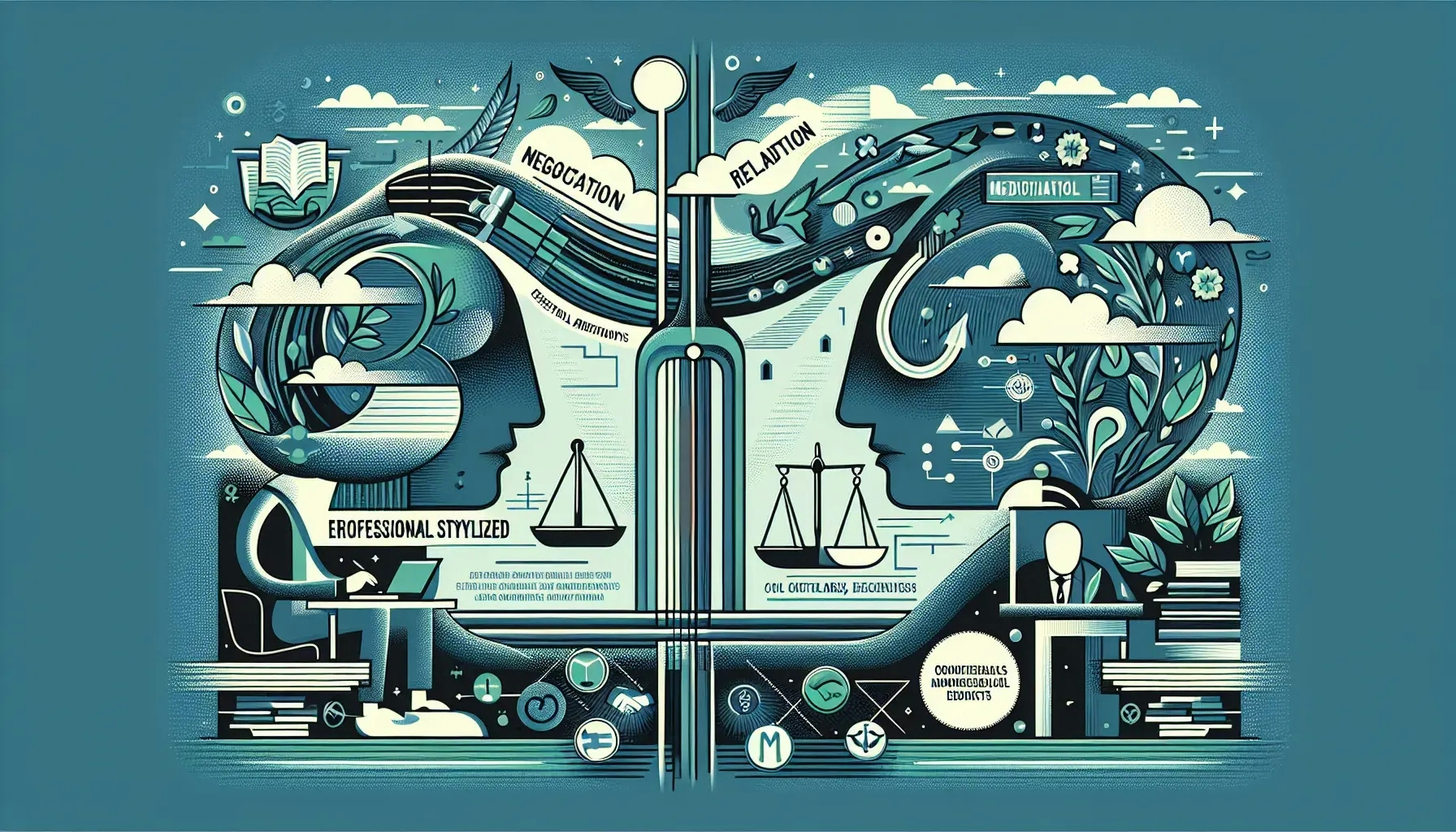Ethical Standards in Professional Mediation
Mediator Experts

The world of professional mediation thrives on trust, neutrality, and confidentiality. These are not just mere words, but the pillars that uphold the ethical standards in this field. This blog post delves into the importance of these standards, how mediators can maintain them, and the potential consequences of their breach.
The Significance of Ethical Standards in Mediation
Ethical standards play a pivotal role in professional mediation. They serve as the guiding principles that ensure fairness, impartiality, and respect during the mediation process. Mediators, as neutral third parties, must adhere to these standards to maintain the integrity of their profession.
Trust forms the bedrock of any mediation process. Parties involved in a dispute rely on the mediator's impartiality and fairness. Any deviation from these ethical standards can lead to mistrust, thereby derailing the entire mediation process.
Moreover, ethical standards ensure that the mediator respects the autonomy of the parties involved. They have the right to make their own decisions without any undue influence from the mediator. This respect for autonomy is crucial in maintaining the dignity of the parties and the integrity of the mediation process.
Upholding Ethical Standards: The Mediator's Responsibility
Mediators bear the responsibility of upholding ethical standards in their practice. They must remain neutral, ensuring that they do not favor one party over the other. This neutrality is crucial in building trust with the parties and facilitating a fair resolution.
Confidentiality is another ethical standard that mediators must uphold. They must ensure that the information shared during the mediation process remains private unless the parties agree otherwise. This confidentiality encourages open communication, which is vital for a successful mediation.
Furthermore, mediators must maintain their competence and professionalism. They should continually update their skills and knowledge to provide effective mediation services. This commitment to professional development reflects the mediator's respect for their profession and the parties they serve.
Breaching Ethical Standards: The Consequences
Breaching ethical standards in professional mediation can have severe consequences. It can lead to a loss of trust in the mediator, damage to the mediator's reputation, and potential legal ramifications.
When a mediator breaches ethical standards, it erodes the trust of the parties involved. This loss of trust can hinder the mediation process, as the parties may feel that the mediator is not acting in their best interest.
Moreover, a breach of ethical standards can tarnish the mediator's reputation. It can lead to a loss of credibility, which can affect the mediator's ability to effectively mediate future disputes.
In some cases, breaching ethical standards can also lead to legal consequences. For instance, if a mediator breaches confidentiality, they may face legal action from the parties involved.
Training and Education: The Path to Ethical Mediation
Training and education play a crucial role in ensuring that mediators uphold ethical standards. Through training, mediators can learn about the ethical standards of their profession and how to apply them in their practice.
Continuing education is also vital for mediators. It allows them to stay updated on the latest developments in their field, including changes in ethical standards. This ongoing learning helps mediators maintain their competence and provide effective mediation services.
Moreover, training and education can help mediators understand the consequences of breaching ethical standards. This understanding can deter them from engaging in unethical practices and encourage them to uphold the ethical standards of their profession.
The Role of Professional Associations in Maintaining Ethical Standards
Professional associations play a significant role in maintaining ethical standards in mediation. They establish codes of conduct that outline the ethical standards that mediators must adhere to. These codes serve as a guide for mediators, helping them navigate ethical dilemmas in their practice.
Professional associations also provide training and education opportunities for mediators. These opportunities allow mediators to enhance their skills and knowledge, thereby enabling them to uphold ethical standards in their practice.
Moreover, professional associations can hold mediators accountable for their actions. If a mediator breaches the association's code of conduct, the association can take disciplinary action against the mediator. This accountability helps ensure that mediators uphold ethical standards in their practice.
The Future of Ethical Standards in Mediation
The future of ethical standards in mediation looks promising. As the field of mediation continues to evolve, so too will the ethical standards that guide it.
Emerging technologies, such as online mediation platforms, are changing the way mediation is conducted. These changes will likely lead to new ethical considerations, such as ensuring the security and confidentiality of online mediation sessions.
Moreover, as mediation becomes more prevalent in various sectors, such as business and law, the importance of upholding ethical standards will only increase. Mediators will need to adapt to these changes while maintaining the ethical principles that underpin their profession.
The Imperative of Ethical Standards in Professional Mediation
Ethical standards form the backbone of professional mediation. They ensure fairness, respect, and trust in the mediation process. As mediators, it is our duty to uphold these standards and maintain the integrity of our profession. As we move into the future, let us continue to uphold these standards, adapt to changes, and strive for excellence in our practice.